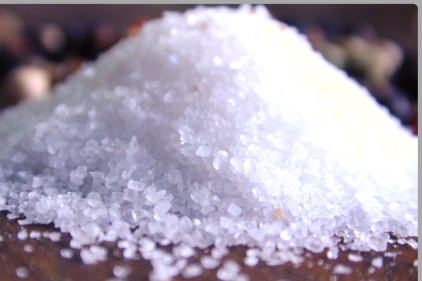The project, undertaken by Leatherhead Food Research (LFR), set out to identify suitable techniques to reduce salt which would also address the related problems of products having a shorter shelflife or lacking taste or texture. The report shows potential future methods exist but need either considerably more scientific development, including establishing their safety for consumption, or have yet to be tried in actual foods.
The BRC and FDF said its members are all committed to ongoing efforts to reduce salt in their foods wherever possible, but given the limited solutions identified in the report, in the future this is likely to mean salt reduction will be achieved through small changes to individual products rather than dramatic reductions across entire ranges.
With retailers and major brands reaching the limit of what they can do until there are further scientific advances, the trade bodies said efforts to reduce salt consumption in the U.K. should focus on:
* Encouraging companies not currently engaged in the Responsibility Deal to get involved.
* Spreading the successful approaches used by big name retailers and brands to smaller businesses, particularly within catering.
* Consumer education, such as encouraging people to use herbs and spices when cooking and to taste food at the table before adding salt.
BRC Deputy Food Director, Andrea Martinez-Inchausti, said, “The U.K. leads the world in salt reduction and we’re approaching the limit of what is currently possible. Producing foods with even less salt but which go off too quickly or lack flavor could simply result in consumers switching to higher salt products. That’s no solution.
“Retailers take their commitment to public health extremely seriously and have invested their own money in this research specifically to look for new ways of doing even better on salt. There’s no arguing with the science though. Development of new techniques is going to take time and retailers will have to wait for those advances along with everybody else.
“There’s no reason for efforts on salt reduction to stand still in the meantime. Other business which lag behind the best or haven’t even committed to reducing salt need to catch up. Making our research freely available can help them do that. And there has to be a realistic look at people’s behavior in the home.”
Dr. Paul Berryman, chief executive at Leatherhead Food Research,added, “Salt reduction is very complex. Each product category presents different challenges because salt affects taste, texture, shelflife and food safety.
“Our research identified some exciting new techniques using mineral salts, potassium replacers, taste enhancers and clever manipulation of salt crystal size and position. These will assist food companies new to salt reduction.
“However, government should reconsider its discouragement of potassium replacers and give clear guidance on how companies can gain legal approval for novel approaches. Most importantly, we need a standard method to check that salt reduction does not compromise the safety and shelf life of the food. After all, salt is a natural preservative.”
